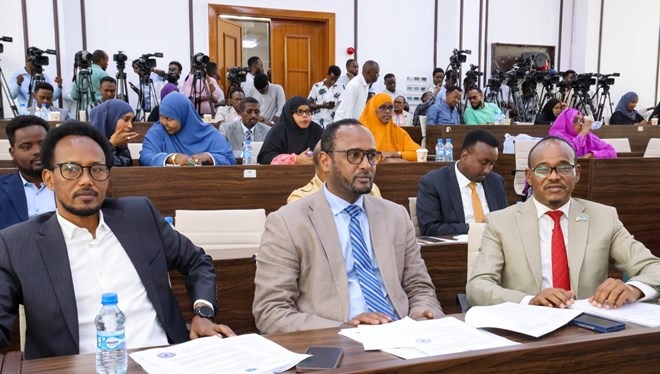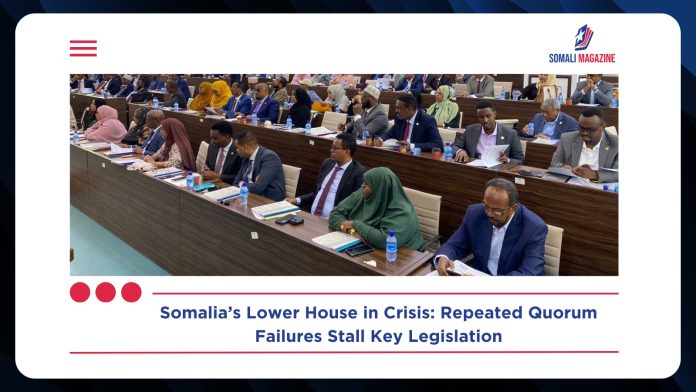Facebook Twitter (X) Instagram Somali Magazine - People's Magazine
Somalia’s Lower House has once again been forced to postpone a scheduled parliamentary session due to repeated quorum failures, highlighting a deepening crisis in legislative attendance and governance. On Monday, only 87 lawmakers showed up—far short of the 139 required to conduct official business—forcing the House to delay key agenda items, including the swearing-in of two new members and a vote on a landmark child rights treaty.
The session, the first since lawmakers returned from the Eid al-Adha recess, was expected to address Somalia’s ratification of the African Charter on the Rights and Welfare of the Child, a critical legal framework adopted by the African Union. The failure to meet quorum not only delayed this vote but also stalled other legislative matters, further compounding frustrations over chronic absenteeism.
Deputy Speaker Abdullahi Abshirow voiced concern over the persistent no-shows, warning that the House cannot fulfill its constitutional duties if members continue to neglect their responsibilities. “This House cannot carry out its responsibilities if members continue to be absent,” he said, urging lawmakers to attend the rescheduled session on Wednesday.
This is not an isolated incident. Over the past year, Somalia’s Parliament has repeatedly failed to meet quorum, with some sessions collapsing after fewer than 120 MPs appeared. In early 2023, a vote on the national budget had to be postponed twice due to low attendance, and when it finally passed, 138 lawmakers had skipped the vote entirely.

The Somali constitution requires a two-thirds majority—184 members—for a full quorum, but Parliament has consistently fallen short. Despite repeated warnings from Speaker Sheikh Adan Mohamed Nur (Adan Madobe) and calls for accountability, there is currently no enforcement mechanism to penalize absenteeism or compel lawmakers to justify their absence.
The lack of consequences has fueled public criticism, with citizens accusing MPs of undermining democratic processes. A 2016 report revealed that absenteeism in the 9th Parliament ranged from 66% to 94% among the worst offenders, and attendance data for subsequent parliaments remains undisclosed.
Political analysts suggest that some absences may be strategic. In February, a session collapsed when only 137 lawmakers attended—just two short of the required quorum—amid speculation that opposition MPs had staged a tactical boycott to block a no-confidence motion against Prime Minister Hamza Abdi Barre.
The repeated disruptions are not only stalling legislative progress but also eroding public trust in Somalia’s democratic institutions. With critical reforms, budgetary decisions, and international agreements hanging in the balance, the inability of Parliament to function effectively poses a serious threat to national governance.
As the next session approaches, pressure is mounting on lawmakers to show up and fulfill their constitutional mandate. Whether the rescheduled sitting will proceed remains uncertain, but the growing chorus of frustration from both citizens and civil society suggests that patience is wearing thin.

